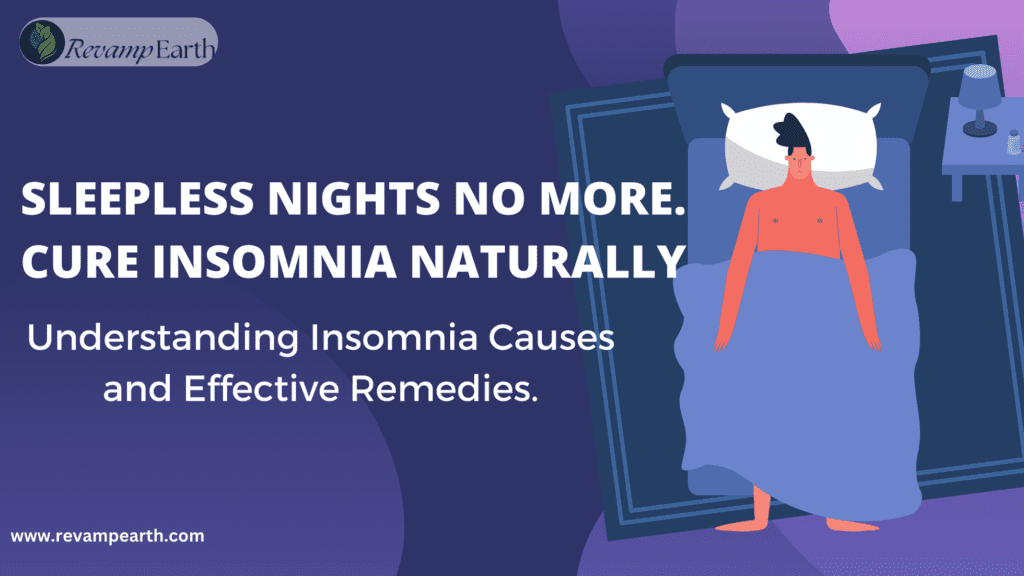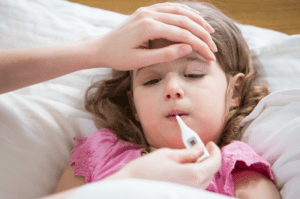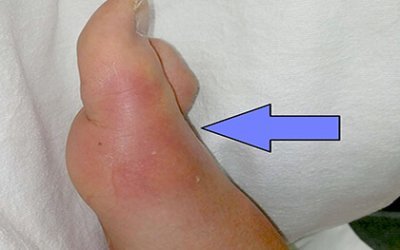Understand Insomnia, Know How To Treat Them

Welcome to my blog, where we unravel the mysteries of insomnia, offering insights into its causes, prevention, symptoms, herbal remedies, and lifestyle adjustments. In this concise guide, we’ll explore the factors behind insomnia, share evidence-based preventive strategies, and delve into the healing potential of herbal remedies. Recognize the subtle symptoms, and discover how simple lifestyle changes can pave the way to a restful night’s sleep. Join us in unlocking the secrets of serenity for a revitalized and energized life.
This blog serves as a beacon of understanding, shedding light on the science behind sleep, the consequences of insomnia, and the diverse array of coping mechanisms available. Whether you’re a restless soul searching for solace or a curious mind seeking knowledge, embark with us on a quest to demystify insomnia and rediscover the tranquility that comes with a peaceful night’s sleep. Together, let’s navigate the intricate pathways of the sleep maze and reclaim the sanctuary of our dreams.
Complications of Insomnia:
Impaired Cognitive Function: Persistent sleep deprivation can impair cognitive functions such as memory, attention, and decision-making. It may also hinder the ability to concentrate and process information effectively.
Mood Disorders: Insomnia is closely linked to mood disorders, including depression and anxiety. The reciprocal relationship between sleep and mental health means that insomnia can exacerbate existing mood disorders, and vice versa.
Weakened Immune System: Lack of adequate sleep weakens the immune system, making individuals more susceptible to illnesses and infections. Chronic insomnia has been associated with a higher risk of developing various health problems.
Cardiovascular Issues: Prolonged sleep disturbances are linked to an increased risk of cardiovascular conditions such as hypertension, heart disease, and stroke. Disrupted sleep patterns may contribute to inflammation and other factors that impact heart health.
Weight Gain and Metabolic Issues: Insomnia has been associated with weight gain and metabolic disturbances. Changes in appetite-regulating hormones may lead to overeating, poor food choices, and an increased risk of obesity.
Daytime Fatigue and Impaired Performance: Insomnia often results in persistent daytime fatigue and reduced alertness. This can impair performance at work or in daily activities, leading to an increased risk of accidents and errors.
Increased Risk of Chronic Diseases: Chronic insomnia is linked to an elevated risk of developing chronic conditions such as diabetes, neurodegenerative disorders, and certain cancers. The precise mechanisms connecting sleep disturbances to these conditions are still under investigation.
Quality of Life Impairment: Individuals with chronic insomnia often experience a diminished quality of life. The constant struggle with sleep can lead to frustration, irritability, and a sense of helplessness, impacting overall well-being.
Possible Causes of Insomnia:
Stress and Anxiety: High levels of stress and persistent worries can make it challenging to relax and fall asleep. Anxiety disorders and chronic stress contribute significantly to insomnia.
Poor Sleep Hygiene: Irregular sleep schedules, excessive use of electronic devices before bedtime, and an unsupportive sleep environment can disrupt the body’s natural sleep-wake cycle, leading to insomnia.
Medical Conditions: Certain medical conditions and chronic illnesses, such as chronic pain, asthma, allergies, gastrointestinal problems, and hormonal imbalances, can interfere with sleep.
Psychiatric Disorders: Mental health disorders, including depression, bipolar disorder, and post-traumatic stress disorder (PTSD), are closely linked to insomnia. The relationship between mental health and sleep is bidirectional, with one often exacerbating the other.
Medications: Some medications, particularly those that affect the central nervous system or have stimulating effects, may interfere with sleep. It’s important to consult with a healthcare professional if insomnia is a side effect of prescribed medications.
Substance Use: Consumption of stimulants such as caffeine and nicotine, especially close to bedtime, can disrupt sleep patterns. Similarly, alcohol and certain drugs can affect the quality of sleep.
Shift Work and Jet Lag: Irregular work schedules, especially those involving night shifts or frequent time zone changes (jet lag), can disturb the body’s natural circadian rhythm, leading to insomnia.
Age-related Changes: Older adults may experience changes in sleep patterns, including difficulty falling asleep and staying asleep. Factors such as changes in melatonin production and increased prevalence of medical conditions contribute to age-related insomnia.
Environmental Factors: Noise, light, and other environmental factors can influence sleep quality. Disruptions from external sources can make it challenging to achieve deep, restful sleep.
Hormonal Changes: Hormonal fluctuations, such as those experienced during menstruation, pregnancy, and menopause, can impact sleep. Conditions like insomnia may be more prevalent during these hormonal shifts.
Genetic Predisposition: Some individuals may have a genetic predisposition to insomnia, making them more susceptible to sleep difficulties.
Understanding the specific causes contributing to an individual’s insomnia is crucial for developing an effective treatment plan. In many cases, adopting healthy sleep habits, addressing lifestyle factors, and seeking professional guidance can help alleviate insomnia. If insomnia persists, consulting with a healthcare provider or sleep specialist is recommended to identify and address the root causes.

Management Strategies:
Establish a Consistent Sleep Schedule:
Go to bed and wake up at the same time every day, even on weekends.
Maintain a regular sleep routine to reinforce the body’s natural circadian rhythm.
Research shows It takes 16 weeks to restore the sleep cycle.
Create a Relaxing Bedtime Routine:
Engage in calming activities before bedtime, such as reading, listening to soothing music, or practicing relaxation techniques.
Avoid stimulating activities and electronic devices at least an hour before bedtime.
Optimize Sleep Environment:
Keep the bedroom dark, quiet, and cool.
Invest in a comfortable mattress and pillows to enhance sleep quality.
Consider using blackout curtains or a white noise machine if environmental factors disrupt sleep.
Limit Exposure to Light:
Expose yourself to natural sunlight during the day to regulate the circadian rhythm.
Minimize exposure to artificial light, especially blue light from screens, in the evening.
Watch Diet and Caffeine Intake:
Avoid heavy meals, caffeine, and nicotine close to bedtime.
Opt for a light snack if hunger is a concern, but avoid large meals that may cause discomfort.
Exercise Regularly:
Engage in regular physical activity, but avoid intense exercise close to bedtime.
Regular exercise can help regulate sleep patterns and reduce stress.
Manage Stress and Anxiety:
Practice relaxation techniques such as deep breathing, meditation, or progressive muscle relaxation.
Consider incorporating stress-reducing activities into your daily routine. Try to deal with anxiety naturally.
Cognitive Behavioral Therapy for Insomnia (CBT-I):
CBT-I is a structured therapeutic approach that addresses negative thought patterns and behaviors associated with insomnia.
It helps individuals develop healthier sleep habits and improve their relationship with sleep.
Limit Naps:
If napping during the day, keep it short (20-30 minutes) and avoid napping too close to bedtime.
Limit Time in Bed Awake:
If unable to sleep, get out of bed and engage in a quiet, non-stimulating activity until feeling sleepy.
Consult a Healthcare Professional:
If insomnia persists or worsens, seek advice from a healthcare provider or sleep specialist.
Medications for insomnia may be prescribed in certain cases, but these should be used under the guidance of a healthcare professional.
Exploring Herbal Remedies
Cumin Seeds: A teaspoon of the powder of fried cumin seeds mixed with the pulp of a ripe banana can be taken at night to induce sleep.
Indian Hemp (Cannabis sativa): The juice of leaves is beneficial for insomnia They can be administered to induce sleep. Charas, which is the active principle of hemp as well as Ganja are effective drugs to induce deep sleep.
NOTE: Hemp is a botanical class of Cannabis sativa cultivars grown specifically for industrial or medicinal use. In India, It is produced in parts of Himachal Pradesh though it is illegal under the Narcotic Drugs and Psychotropic Substances (NDPS) Act, 1985. Although the use of herbs like Opium, Marijuana is illegal in countries like India, Singapore, Malaysia, UAE, Japan, China, Egypt, Etc.
Precaution: Excessive consumption of hemp is physically and mentally harmful. If consumed for a long time, it causes loss of appetite and gastric problems. Hemp drugs act chiefly on the cerebrum where they resemble the action of alcohol or opium.
Nutmeg with Amla or Honey: The powder of nutmeg, mixed with fresh amla juice, is also an effective medicine for insomnia, irritability, and depression. Nutmeg paste mixed with honey is given to infants who cry at night for no apparent reason, to induce sleep. It should, however, not be given regularly without medical advice as it may cause serious complications and addiction in infants.
Poppy seeds (Khas-khas): About 30 grams of paste extracted from the seeds mixture mixed with sugar of equal quantity, can be used for treating insomnia.
A teaspoon of poppy seed oil taken every night is also very effective.
Valerian: The Herb is useful in treating insomnia. It reduces excitement, irritation, and pain. The fresh juice of the plant can be used as in narcotic to induce sleep.
Note: This herb is officially banned in some European countries.
Always remember that the effectiveness of herbal remedies can vary, and individual responses may differ. It’s crucial to consult with your healthcare provider before trying any herbal supplements, especially if you are taking medications or have pre-existing health conditions. Additionally, herbal remedies should be used as part of a comprehensive treatment plan that includes proper medical care, lifestyle modifications, and medication adherence.
References
Charles M.Morin1, Christopher L. Drake, Allison G. Harvey, Andrew D. Krystal, Rachel Manber, Dieter Riemann6 and Kai Spiegelhalder (2015) Insomnia disorder. Nature Reviews Disease Primers 1(1):15026 DOI:10.1038/nrdp.2015.26. View
Thomas Roth, PhD (2007) Insomnia: Definition, Prevalence, Etiology, and Consequences. National Library of Medicine. View
- H.K.Bakhru (1992) Herbs That Heal: Natural Remedies for Good Health. Orient Paperbacks. Delhi, India.
- T.V.Sairam (1999) Home Remedies Vol-II: A Handbook of Herbal Cures for Common Ailments. Penguin Books India.
Dos
Adopt a Heart-Healthy Diet:
Do: Embrace a diet rich in fruits, vegetables, whole grains, lean proteins, and low-fat dairy products.
Do: Choose foods low in sodium and limit processed and high-sodium foods.
Maintain a Healthy Weight:
Do: Strive for a healthy weight through a balanced diet and regular physical activity.
Engage in Regular Physical Activity:
Do: Aim for at least 150 minutes of moderate-intensity aerobic exercise or 75 minutes of vigorous-intensity exercise per week.
Do: Include strength training exercises at least twice a week.
Monitor Blood Pressure at Home:
Do: Regularly check blood pressure at home to track changes and report findings to your healthcare provider.
Practice Stress Management:
Do: Incorporate stress-reducing techniques such as deep breathing, meditation, yoga, or tai chi into your routine.
Limit Alcohol Consumption:
Do: If you choose to drink, do so in moderation (up to one drink per day for women and up to two drinks per day for men).
Quit Smoking:
Do: Quit smoking to reduce the risk of hypertension and cardiovascular diseases.
Don’ts
High-Sodium Diet:
Don’t: Consume excessive amounts of salt. Limit processed foods and choose low-sodium alternatives.
Sedentary Lifestyle:
Don’t: Lead a sedentary lifestyle. Regular physical activity is crucial for blood pressure management.
Ignoring Medication:
Don’t: Skip or alter prescribed medication without consulting your healthcare provider.
Excessive Alcohol Intake:
Don’t: Drink alcohol excessively, as it can raise blood pressure.
Stress Neglect:
Don’t: Ignore stress management. Chronic stress can contribute to hypertension.
Ignoring Weight Management:
Don’t: Neglect weight management. Excess weight can contribute to elevated blood pressure.
Ignoring Symptoms:
Don’t: Ignore symptoms like headaches, shortness of breath, or chest pain. Report any concerning signs to your healthcare provider.
Unhealthy Dietary Choices:
Don’t: Rely on a diet high in saturated fats, cholesterol, and processed foods.
Send Us A Message
FAQs
- Insomnia can be caused by various factors, including stress, anxiety, depression, certain medications, medical conditions, and lifestyle factors such as irregular sleep schedules or excessive screen time before bed. Other causes include sleep disorders like sleep apnea or restless leg syndrome.
- Treatment for insomnia often involves improving sleep hygiene, such as maintaining a regular sleep schedule, creating a relaxing bedtime routine, and limiting caffeine and electronics use before bed. Cognitive-behavioral therapy for insomnia (CBT-I) can also be effective. In some cases, medications may be prescribed.
- To prevent insomnia, establish a consistent sleep schedule, create a relaxing bedtime routine, and ensure your sleep environment is comfortable and free of disturbances. Limit caffeine and alcohol consumption, especially in the evening, and avoid heavy meals and exercise close to bedtime. Practice stress management techniques such as meditation or deep breathing exercises.
- Yes, many people can manage insomnia without medication by practicing good sleep hygiene, establishing a regular sleep schedule, and incorporating relaxation techniques such as meditation or deep breathing exercises. Cognitive-behavioral therapy for insomnia (CBT-I) can also be effective in treating the underlying causes of insomnia without the use of medication.














